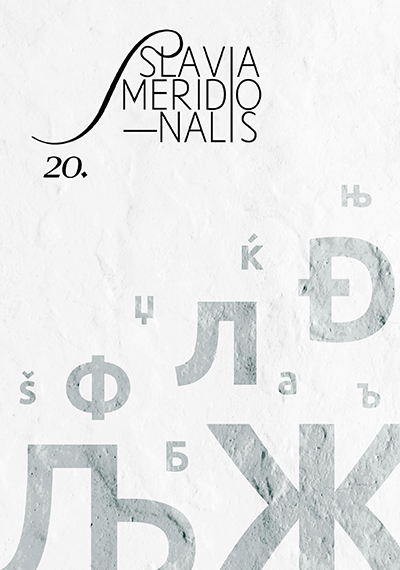Старобългарски химнографски творби в Краковския печатен октоих (1491 г.)
Old Bulgarian Hymnographic Works in the Krakow Printed Octoechos (1491)
Author(s): Mariĭa ĬovchevaSubject(s): Studies of Literature, Bulgarian Literature
Published by: Instytut Slawistyki Polskiej Akademii Nauk
Keywords: hymnography; Krakow Octoechos; Old Bulgarian works of Cyrillo-Methodian disciples
Summary/Abstract: Based on the inhomogeneity of the texts in the first printed Octoechos (Schweipolt Fiol, Krakow 1491), the study focuses on the text's most archaic layer, which contains Old Bulgarian works by Cyrillo-Methodian disciples and was written in Bulgaria at the end of the 9th and the beginning of the 10th century. The article examines three original (non-translated) canons that form parts of the Sunday and weekday Octoechos offices. Two of them are considered to have been written by St. Clement of Ohrid: Canon to St John the Baptist (Tuesday, 2nd Tone) and Canon to Theotokos (Wednesday, 3rd Tone), both of which were very common until the 14th century in Slavic manuscripts of various origins. The third one, Canon to the Holy Trinity (Midnight Office for Sunday, 2nd Tone), is anonymous and has so far only been discovered in a single Serbian Octoechos, Gilf. 26, the National Library of Russia (14th century), while in Eastern Slavic literature it is only found in the codex under review. The specificities in the texts of Fiol’s Octoechos as well as its particular position in the written tradition of these hymnographic works are described in comparison to copies of various origins. Textological data are interpreted mostly in search of the protograph of the printed version. The collation of the texts shows that the archaic layer of the Krakow incunabulum is most probably based on at least two protographs (or antigraphs) which are indirectly related to the earliest core of the Old Bulgarian Octoechos. One was used for the Tuesday and Wednesday offices (probably through an Eastern Slavic medium), and the other (of possible South Slavic origin) was used as the source of the canon to the Holy Trinity (2nd Tone) in the Sunday office.
Journal: Slavia Meridionalis
- Issue Year: 2020
- Issue No: 20
- Page Range: 1-22
- Page Count: 22
- Language: Bulgarian

